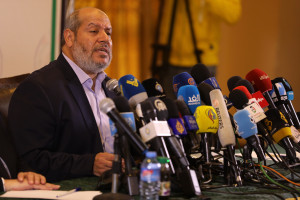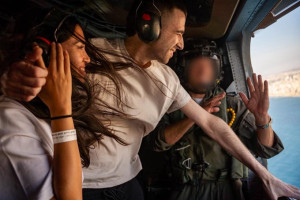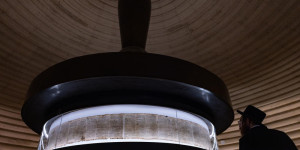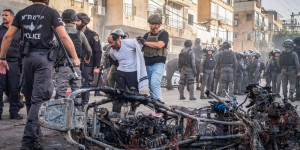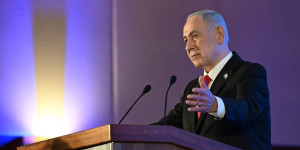Former hostages speak on keeping Shabbat in captivity: ‘I felt God was with us’

More than a few of the former hostages who made it out alive from Gaza are testifying that they had profound spiritual experiences deep in the Hamas terror tunnels.
Keith Siegel went into captivity as an atheist, but now prays over every bit of food, and keeps Shabbat. Rom Braslovski was starving after two years in the tunnels, but refused to convert to Islam, even when offered food, and came out declaring over and over, “I’m Jewish!” . Sapir Cohen learned Psalm 27 by heart and recited it every day, giving strength to herself and others. Omer Shem Tov said that he experienced God's presence in the darkness so strongly that he even misses it.
Now YNet has reported that over the weekend, former hostages Segev Kalfon, Matan Angrest, and Eitan Mor attended a Shabbat event in Jerusalem where they shared how they tried to keep Shabbat in the direst of circumstances. The men talked publicly about the subject for the first time at the event at the Waldorf Astoria Hotel.
Guests at the gathering, which had been organized by Rabbanit Tzili Schneider, head of Kesher Yehudi, heard how the former hostages would sing traditional Shabbat songs and say the blessings, determined to do the best with the little they had.
Angrest relayed the significance of finding a Jewish prayer book, known as a siddur. “Once I had a siddur, I told myself I couldn’t pray three times a day and then not keep Shabbat. It comes together,” he told the guests. According to YNet he would recite the kiddush blessings at the beginning of Shabbat on Friday evening and also the prayers said at the end of Shabbat on Saturday, known as the Havdalah. He talked about saving food or drink for the weekly rituals, and how he learned about keeping Shabbat from the book he found in Gaza, presumably left by Israeli soldiers.
Despite having the book to guide him, keeping the traditions in isolation felt like something of a vacuum. “There were no Friday night meals, no atmosphere. You sit alone and wait for your food so you can make Kiddush. You don’t know when you’ll get something to drink for Havdalah,” he said.
Despite all the assaults on him physically, mentally, and emotionally, the traditions of Shabbat helped Angrest to hold on to his identity. “It gave me strength that I was in the right place and doing the right thing,” he said.
Kalfon said they were not the only ones keeping Shabbat, but that other hostages were also observing the Jewish tradition. “We were in a place of impurity, the roots of Islam. For us it was something big. We were in a small tunnel, shaking the place, shaking Shabbat,” he said.
While limited to water and pita bread, they shared details about their mothers’ cooking.
“Everyone would talk about how their mother makes the fish and what they eat at home, while we were eating half a pita with cheese,” Kalfon recalled.
The gathering heard how the hostages tried to keep Jewish holidays while deep underground, not always accurately gauging the passage of time. “The intention was what mattered,” said Kaflon.
Did God mind when they missed the exact dates of the holidays? When they had to use water instead of wine? Or did He see their determined efforts to honor Him in that place of darkness all the more? More than a perfectly timed ritual with the richest of fare? I think we all know the answer. The resilience of the hostages and their determination to stand strong in the faith of their fathers has been an inspiration to us all.

Jo Elizabeth has a great interest in politics and cultural developments, studying Social Policy for her first degree and gaining a Masters in Jewish Philosophy from Haifa University, but she loves to write about the Bible and its primary subject, the God of Israel. As a writer, Jo spends her time between the UK and Jerusalem, Israel.
You might also like to read this:


